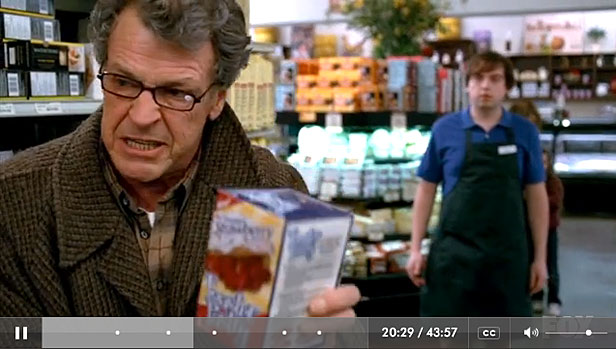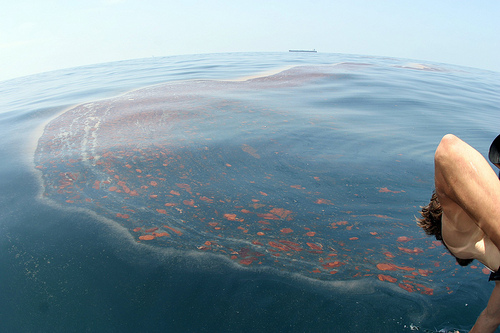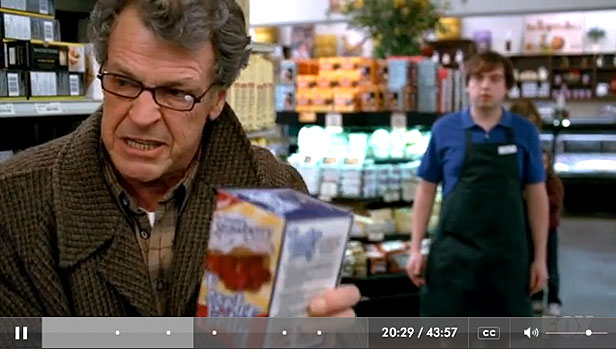 Fringe mad scientist Walter Bishop goes postal over potassium bromate
Fringe mad scientist Walter Bishop goes postal over potassium bromate
The sci-fi TV show Fringe had a surreally satisfying sequence in the May 6 episode, available on Hulu.com, in which supposedly mad scientist Walter Bishop goes food shopping. Walter, who in the series spends a lot of time in alternate universes, is holding a box of Pop-Tart-like breakfast snacks when he suddenly glimpses the unpleasant parallel reality of the U.S. food system:
Walter, picking up box of “Toaster Pastries” and muttering to himself: “Corn starch, soy lecithin, potassium bromate… potassium bromate?!!!! This supermarket is trying to kill us! You — potassium bromate, do you know what that is?”
Supermarket worker: “Are you OK, sir?”
Walter: “It is known to induce renal cell tumors and mesotheliomas of the peritoneum! Do you know what you are putting into our bodies? Death! Delicious, strawberry-flavored death!”
Supermarket worker: “OK, I’m calling security.”
Unfortunately, this isn’t science fiction. Potassium bromate is a food additive, a powerful oxidizer commonly employed to improve flour, which is considered possibly carcinogenic to humans and as such has been banned from use in food products in Europe, Canada, and most other countries including China. It is not, however, banned in the United States, and it can indeed be found in baked goods. While potassium bromate does not seem to be an ingredient in actual Kellogg’s Pop-Tarts — surprisingly, considering how many additives are in them — a quick search for “toaster pastry and potassium bromate” turns it up in the list for Log House All Natural Original Zwieback Toast — “the perfect family snacks that are among the healthiest snacks available today.”
And in a twist worthy of Fringe creator J.J. Abrams himself, I found the Log House toasts on the online store for Hannaford Bros., a New England supermarket chain made famous for its innovative use of Guiding Stars on food shelves to help shoppers make healthy decisions.
Science fiction aside, it’s simplistic and paranoid to paint Big Food as an evil industry out to “get” us. But in the U.S., it’s becoming increasingly clear — as a new report from the President’s Cancer Panel states — that we need better regulations for possibly carcinogenic everyday chemicals.



